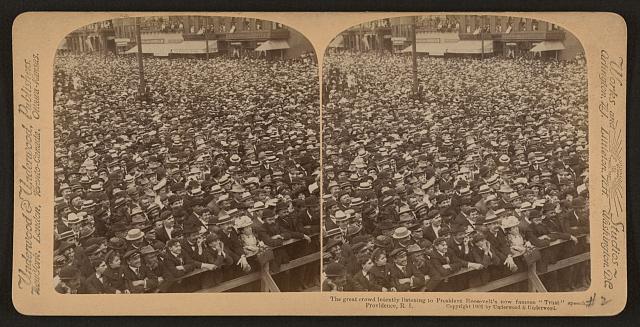Paul Manafort, the adviser Donald Trump recently hired, is a powerful and secretive person who’s helped dictators, oligarchs, and despots renovate their public images, writes Franklin Foer in a deep look at Manafort’s long track record. “Manafort has spent a career working on behalf of clients that the rest of his fellow lobbyists and strategists have deemed just below their not-so-high moral threshold,” Foer reports. “He has a particular knack for taking autocrats and presenting them as defenders of democracy. If he could convince the respectable world that thugs like [Jonas] Savimbi and [Ferdinand] Marcos are friends of America, then why not do the same for Trump?”
Why have this season’s political speeches been so lackluster and unmemorable? Seth Stevenson asked an array of speechwriters for their thoughts. Many, Stevenson writes, thought “the deficit of speechy speeches is a result of the electorate’s seeming thirst for authenticity.” In trying to respond to that demand, candidates have put ambitious Obama-style oration to the side.
The Southern Baptists, writes Ruth Graham, “have become the loudest chorus of anti-Trump voices within conservative evangelicalism,” led by Russell Moore, president of the denomination’s policy arm and proprietor of a virulently anti-Trump Twitter feed—but not all Baptists are on board. “Intra-denominational conflict is practically a sacrament for Protestants, but this is one that happens to illuminate the broader hand-wringing within evangelicalism over how to handle the general election,” Graham points out. If we end up with a Trump vs. Clinton matchup, evangelicals are going to be seriously torn.
Laura Moser interviewed Christopher Emdin about his new book written for white teachers about to start jobs in majority-minority schools. “I argue that one of the functions of being black and brown and poor is that you learn to be able to speak about your concerns and your frustration more readily than somebody who has the world handed to them,” Emdin tells Moser. “Let them have the opportunity to speak to that in school and let them be supported for it and get good grades for it.”
Prince’s guitar skills were out of this world, writes Jack Hamilton, and it’s a sign of our racially tinged perceptions that he’s not given an automatic top-10 spot in every list of guitar heroes. “Throughout his career,” Hamilton writes, “Prince’s greatness as a guitarist was widely acknowledged but often as a sort of curiosity … By the time Prince emerged into superstardom, the notion of a post-Hendrix black rock guitar god had become more or less unthinkable to rock fans.”
For fun: Play the “woman card”!
Go ahead, see what happens,
Rebecca
